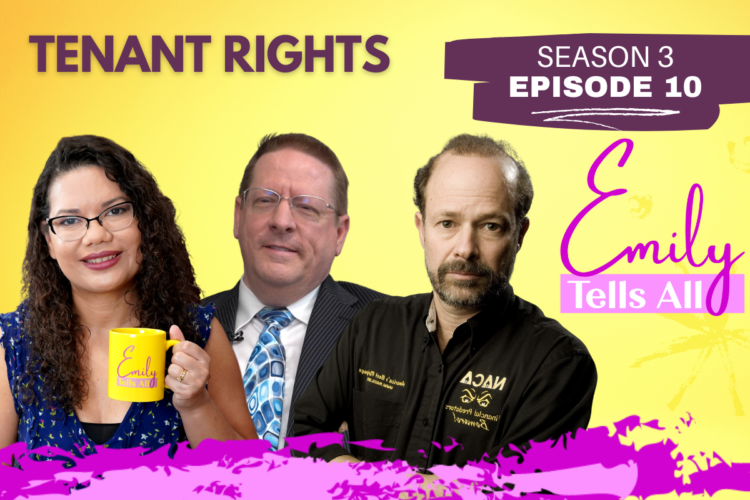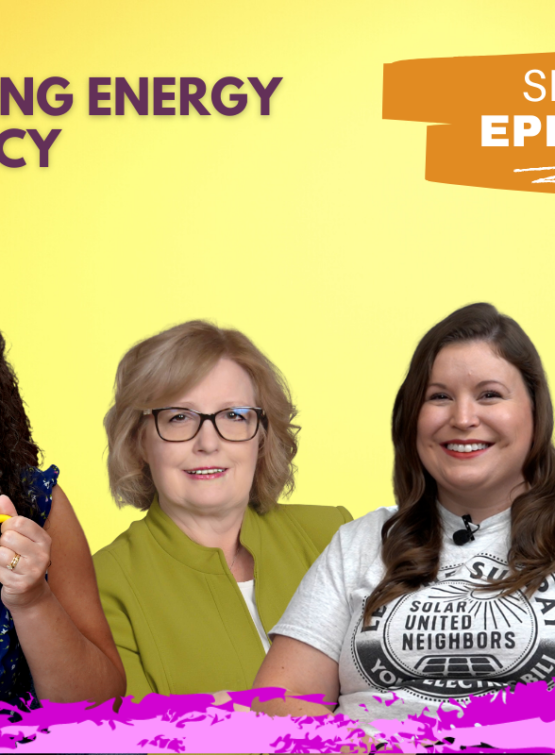AIR DATE MARCH 9, 2023
Title: Tenant Rights
Gain a better understanding of your rights as a tenant in Florida.
Guests
NACA, Founder and CEO – Bruce Marks
Legal Aid Society of the Orange County Bar Association, Staff Attorney – Jay Mobley
Tenant Rights Ensure Homes Meet Personal Needs
Renting a home has several pros and cons to consider. You have more flexibility with your living arrangements, but don’t get the opportunity to build wealth through real estate ownership when signing a lease.
As a tenant, Florida offers several rights landlords must follow to ensure your home is safe and supportive. I recently spoke about this topic with Bruce Marks, founder and CEO of Neighborhood Assistance Corporation of America (NACA).
“What you see is that [landlords] do not maintain the properties,” he told me. “What you see is that they are very quick to evict the tenants [and] charge high rents.”
According to Marks, renting generates wealth for already wealthy entities when those steps could be developed for themselves. Getting tenants from one place to the other is his goal with NACA.
Renters Need Support to Protect Their Legal Rights
Jay Mobley is the Senior Housing and Consumer Attorney at the Legal Aid Society. This organization provides several forms of support, ranging from family law to domestic violence intervention. If you live in Orange County and are below 200% of the federal poverty level for your household, you generally qualify to receive services.
Mobley told me that tenant law can be confusing, especially since people must know how to read the statutes. “The rights are there, but tenants sometimes don’t know how to exercise them,” he told me. “I think the most important thing is to reach out, talk to somebody that understands it like myself or one of our other housing attorneys and find out, because everyone’s situation is a little bit different.”
The first step in knowing if your rights are violated is to determine if you’re dealing with a moral or a legal issue. Then read the lease to ensure you’re satisfied with the terms and conditions the landlord requires. “I’ve seen leases with just fees after fees after fees,” Mobley said. “If you have a fee for calling and reporting a problem with the unit, that should tell you that you probably don’t want to be in that lease because there should never be a charge for reporting a problem to your landlord.”
How to Start the Path Toward Ownership
Marks told me that purchasing a home with no down payment or closing costs through NACA is possible. Both issues are common barriers that families face when trying to become homeowners.
“People work hard, but it’s tough to save money,” Marks said. “What [renters] are paying on time is rent that’s greater than what they would have to pay in a mortgage payment. It’s just money coming in, money going out, and nothing stays there.”
With NACA providing this resource, tenants can build something for themselves instead of moving from property to property, often under the same unwanted landlord.
If you’re not in a place where ownership makes sense right now, Mobley says one of the most important steps you can take is to walk through your prospective unit. “No two units are exactly alike, and one may not be in as good a repair as the other,” he said. Landlords should be giving you a walkthrough checklist. So, if you didn’t get to see it, you walk through it immediately. Mark all the problems down.”
When tenants take steps to protect themselves, they’re more likely to be in a home they like without risking their security deposit or having eviction notices started without justification.
Anyone interested in exploring the support from NACA can do so by calling (425) 602-6222 or visiting NACA.com. You can also contact the Legal Aid Society by dialing (407) 841-8310.



